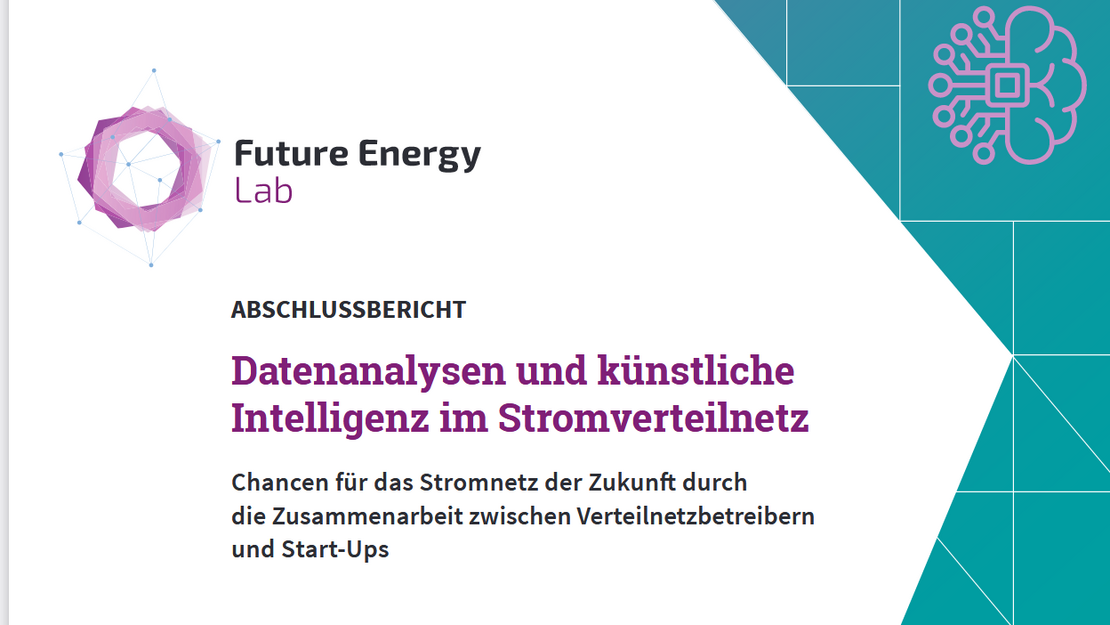This page contains automatically translated content.
Artificial intelligence in the power grid

The German electricity distribution network is undergoing rapid change. On the one hand, the focus is on the expansion of distributed generation plants, and on the other hand, the increasing electrification of cars and heating systems results in load peaks at certain times. For safe, economical and efficient network operation, the current network status of future electricity distribution networks must be known. The necessary transparency can be achieved with the aid of new measuring devices installed in local network stations, for example. However, there is a lack of suitable technical approaches to evaluate the decision-making process on the placement of the measuring devices.
For the project "Data4Grid - Data Analytics and Artificial Intelligence in the Electricity Distribution Grid", project partners investigated concrete use cases for data analytics and AI in the power grid in practice. The University of Kassel was represented by the Department of Energy Management and Operation of Electrical Networks (e²n). The experiences and findings from this collaboration have now been published in a final report.
As part of the practical part of the project, three challenges for data analysis and AI were also defined, which were worked on in close collaboration with grid operators and teams consisting of data scientists and software developers. The team reto4KI is composed of a cooperation between retoflow GmbH, the University of Kassel and Fraunhofer IEE and was able to achieve first place in the challenge "Evaluation of relevant measuring points to increase grid transparency in low-voltage grids". The team developed an iterative method to calculate optimal positioning of measurement equipment for low-voltage grids based on artificial neural networks.
Link to the publication of the final report: